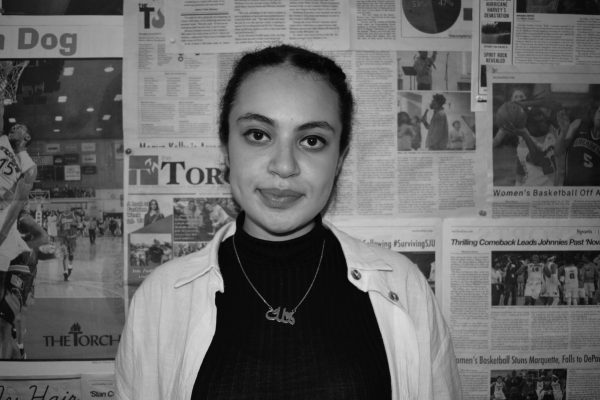
The St. John’s University Division of Mass Communication held a virtual panel featuring New York Times political feature writer and St. John’s alumnus, Shawn McCreesh, as part of the Journalist Series. The event took place on Nov. 21 on Webex from 1:50 p.m. through 3 p.m.
The panel consisted of a conversation between McCreesh and Michael Rizzo, director of the journalism program. Students had the opportunity to ask McCreesh pre-selected questions at the end of the session.
He began by explaining why he believes journalism is an attractive industry to enter.
“It gives you this all-access pass to interact with these people we would otherwise never come across.”
Throughout his career, he has interviewed many high-profile personalities like prime ministers, former presidents, movie stars, movie directors, billionaires and “people who control entire economies in European countries.”
Leading up to the presidential election, McCreesh was the lead writer for Donald Trump’s campaign. He explained that he spoke to voters in different parts of the country such as key battleground states like Pennsylvania.
He covered the Trump assassination attempt and listened to his supporters. He spoke to potential voters about their choice to support the president-elect.
Rizzo, who collected questions from various journalism classes, said that many students had questions about McCreesh’s experience covering the Jan. 6 Capitol attack.
Based in Washington D.C., McCreesh initially didn’t consider the situation too seriously. But he got into a cab as soon as he heard that a window broke on the ground and spoke to people gathered there, taking notes, but making sure that he was in the moment.
Relatively new to political reporting, McCreesh discussed how he manages to sustain his own editorial standards, being truthful, free of bias and accurate, “ I guess I would say you’re not supposed to ever be on anyone’s team,” he said, “We’re not supposed to be the resistance. We’re not supposed to be the cheerleaders, whether that’s for Democrats or Republicans— no matter who’s in office.
He describes his job as requiring him to write honestly, accurately and to pose tough questions, yet to be fair all around, especially during election coverage.
Answering a journalism student’s question, McCreesh believes “curiosity” is the most important skill a journalist should have.
But he had to get there somehow. He went through his experience from internships while at St. John’s to the features desk at the Times.
During his time at St. John’s, he interned for amNewYork, which led him to an internship at Rolling Stone Magazine. He then navigated to a job as an editorial assistant at Men’s Journal before working for Maureen Dowd at The New York Times.
To obtain the position at The Times, McCreesh researched previous interns, noticing that most of them came from Ivy League schools. To stand out, he wrote a cover letter acknowledging he didn’t.
“I wrote [Dowd] this cover letter, and it was sort of cocky, and the lead was like, ‘I didn’t go to an Ivy League school.’”
Speaking on the “perks” of being a journalist, he acknowledged the challenges that have risen in recent years because of digital media.
“People hate the media more than ever, and everything just feels like it’s like a three-second Tiktok video,” he said.
But there is room for encouragement as well.
“The Times has never been as big as it is now. It has 11 million subscribers.”
While newsroom shutdowns have been no secret, McCreesh says that those that survive don’t just sustain themselves, but grow. Some examples include the Atlantic and the New Yorker.
“There are a couple traditional outlets that have learned to adapt, and they are always experimenting and trying new story forms and kind of riding the wave.”
McCreesh invited students to stay in touch with him through email.









